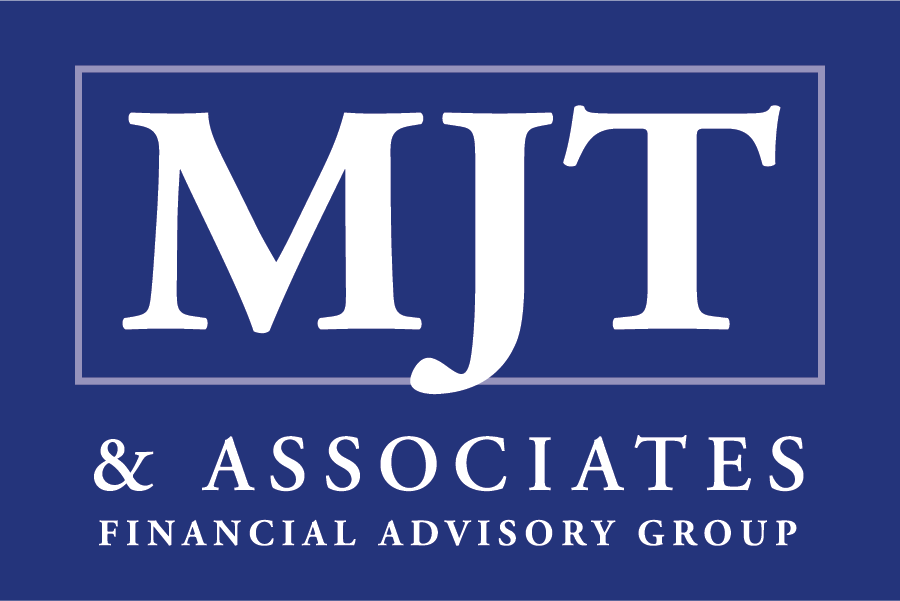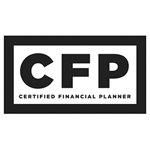When it comes to managing your wealth, finding the right financial advisor can make all the difference. But with so many options out there, how do you choose the right one? One solution is to consider working with a fee-only financial advisor. In this article, we will explore how fee-only financial advisors can help you maximize your wealth and achieve your financial goals.
Unlike advisors who earn commissions on financial products they sell, fee-only advisors are compensated solely by their clients. This means they have no financial incentive to sell you unnecessary products or services. Instead, they are focused on providing you with unbiased advice that is tailored to your unique financial situation.
By working with a fee-only financial advisor, you can have peace of mind knowing that your best interests are always the top priority. Whether you're looking to grow your investments, plan for retirement, or save for your children's education, a fee-only advisor can help create a personalized strategy to help you achieve your goals.
So, if you're ready to take control of your financial future and maximize your wealth, consider partnering with a fee-only financial advisor. Together, you can create a roadmap to financial success.
The advantages of working with fee-only financial advisors
There are several advantages to working with fee-only financial advisors. First and foremost, fee-only advisors have a fiduciary duty to their clients. This means they are legally obligated to act in your best interests at all times. They must put your needs ahead of their own and provide advice that is in your best interest, even if it means recommending a course of action that does not generate any fees for them.
Another advantage of working with fee-only advisors is transparency. Since they are compensated solely by their clients, their fees are clear and upfront. There are no hidden commissions or conflicts of interest. You can trust that the advice you receive is unbiased and objective.
Fee-only advisors also offer a high level of expertise and specialization. They have the knowledge and experience to navigate complex financial situations and provide comprehensive solutions. They stay up to date with the latest industry trends and regulations, ensuring that you receive the most accurate and relevant advice.
How fee-only financial advisors differ from other types of advisors
It's important to understand the key differences between fee-only financial advisors and other types of advisors. One common distinction is between fee-only and fee-based advisors. While fee-only advisors are compensated solely by their clients, fee-based advisors may also earn commissions on the financial products they sell. This can create potential conflicts of interest, as fee-based advisors may have an incentive to recommend certain products that generate higher commissions.
Another distinction is between independent advisors and advisors affiliated with a specific financial institution. Independent advisors have the freedom to recommend a wide range of products and services, while advisors affiliated with a specific institution may be limited to the products offered by that institution. Fee-only advisors can be either independent or affiliated, so it's important to consider their affiliations when choosing an advisor.
The importance of fiduciary duty in fee-only financial advising
One of the key advantages of working with fee-only financial advisors is their fiduciary duty. Fiduciary duty is a legal obligation that requires advisors to act in their clients' best interests. This means they must provide advice and recommendations that are in the best interest of their clients, even if it means foregoing potential financial gains for themselves.
The fiduciary duty of fee-only advisors sets them apart from other types of advisors who may have conflicts of interest. For example, advisors who earn commissions on financial products they sell may be tempted to recommend products that generate higher commissions, even if they are not the best choice for their clients. Fee-only advisors, on the other hand, have no such conflicts of interest and are solely focused on providing unbiased advice that is tailored to their clients' needs.
When working with a fee-only advisor, you can have confidence that their recommendations are based on what is best for you, not what benefits them financially. This level of trust and transparency is crucial when it comes to managing your wealth and achieving your financial goals.
Factors to consider when choosing a fee-only financial advisor
Choosing the right fee-only financial advisor is an important decision that can have a significant impact on your financial future. Here are some key factors to consider when making your choice:
- Experience and expertise: Look for advisors who have a proven track record and specialize in the areas relevant to your financial goals. Consider their qualifications, certifications, and years of experience in the industry.
- Services offered: Determine what services you need and ensure that the advisor offers them. Whether you need help with investment management, retirement planning, tax planning, or estate planning, make sure the advisor has the expertise to meet your specific needs.
- Communication and accessibility: Consider how the advisor communicates with their clients. Do they provide regular updates and reports? Are they accessible when you have questions or concerns? Clear and open communication is essential for a successful advisor-client relationship.
- Fee structure: Understand the fee structure of the advisor and ensure that it aligns with your budget and financial goals. Ask about any additional fees or charges that may apply to the services you require.
- Referrals and reviews: Seek recommendations from trusted sources, such as friends, family, or colleagues who have worked with fee-only advisors. Look for online reviews and testimonials to get a sense of the advisor's reputation and client satisfaction.
Remember to take your time and do thorough research before making a decision. Choosing the right fee-only financial advisor can make a significant difference in achieving your financial goals and maximizing your wealth.
Developing a financial plan with a fee-only advisor
Once you have chosen a fee-only financial advisor, the next step is to develop a comprehensive financial plan. A financial plan is a roadmap that outlines your financial goals and the strategies you will use to achieve them. Working closely with your advisor, you will create a plan that addresses your specific needs and aligns with your long-term objectives.
The financial planning process typically includes:
- Assessment of your current financial situation: Your advisor will gather information about your income, expenses, assets, and liabilities to get a clear understanding of your financial position.
- Establishment of financial goals: Together with your advisor, you will define your short-term and long-term financial goals. These goals may include saving for retirement, buying a home, paying for education, or starting a business.
- Analysis of your risk tolerance: Your advisor will assess your risk tolerance, which refers to your ability and willingness to take on investment risk. This will help determine the appropriate investment strategy for your portfolio.
- Creation of an investment plan: Based on your financial goals and risk tolerance, your advisor will create an investment plan that aligns with your objectives. This may involve diversifying your investments, selecting specific asset classes, and implementing a disciplined investment strategy.
- Regular monitoring and review: Your advisor will continuously monitor your investments and review your financial plan to ensure it remains aligned with your goals. They will make adjustments as needed to keep you on track.
Working with a fee-only advisor ensures that your financial plan is tailored to your unique needs and goals. They will provide ongoing guidance and support as you navigate the ups and downs of the market, helping you stay on track towards financial success.
Common misconceptions about fee-only financial advisors
Despite the many advantages of working with fee-only financial advisors, there are some common misconceptions that can deter individuals from seeking their services. Let's address these misconceptions and provide clarity:
- Fee-only advisors are too expensive: While fee-only advisors do charge fees for their services, the benefits they provide far outweigh the costs. Their expertise, personalized advice, and fiduciary duty ensure that you receive the best possible guidance for your financial goals.
- Fee-only advisors only work with the ultra-wealthy: Fee-only advisors work with clients of all income levels. They can provide valuable advice and guidance regardless of your current financial situation.
- Fee-only advisors only focus on investments: While investment management is often a part of the services provided by fee-only advisors, they offer much more. They can assist with retirement planning, tax planning, estate planning, and other aspects of your financial life.
- I can handle my finances on my own: While it is possible to manage your finances on your own, working with a fee-only advisor can provide you with valuable insights, expertise, and accountability. They can help you make informed decisions and keep you on track towards your financial goals.
- All fee-only advisors are the same: Fee-only advisors come with different backgrounds, experience levels, and areas of specialization. It's important to do your research and find an advisor who aligns with your specific needs and goals.
By addressing these misconceptions, you can make an informed decision and take advantage of the many benefits that fee-only financial advisors offer.
Questions to ask when interviewing potential fee-only financial advisors
When choosing a fee-only financial advisor, it's important to interview potential candidates to ensure they are the right fit for your needs. Here are some key questions to ask during the interview process:
- What is your experience and expertise?: Inquire about the advisor's background, certifications, and areas of specialization. Ask for examples of clients they have worked with who have similar financial goals.
- How are you compensated?: Understand the fee structure of the advisor and ensure it aligns with your budget and financial goals. Ask about any additional fees or charges that may apply to the services you require.
- What services do you offer?: Determine if the advisor offers the specific services you need, such as investment management, retirement planning, tax planning, or estate planning. Make sure their expertise aligns with your financial goals.
- What is your investment philosophy?: Inquire about the advisor's investment approach and how it aligns with your risk tolerance and long-term goals. Ask how they determine the appropriate asset allocation for their clients.
- How often will we communicate?: Communication is key when working with a financial advisor. Ask how often you can expect updates, reports, and meetings. Inquire about their availability for questions or concerns.
- Can you provide references or testimonials?: Request references from current or past clients who can speak to the advisor's professionalism, expertise, and client satisfaction.
By asking these questions, you can gain a better understanding of the advisor's qualifications, services, and approach. This will help you make an informed decision and choose the right fee-only financial advisor for your needs.
Fee-only financial advisor certifications and qualifications
When evaluating fee-only financial advisors, it's important to consider their certifications and qualifications. While certifications are not the sole indicator of an advisor's competence, they can provide assurance of their expertise and commitment to professional standards. Here are some common certifications and qualifications to look for:
- Certified Financial Planner (CFP®): The Certified Financial Planner designation is one of the most recognized certifications in the financial planning industry. CFP® professionals have completed rigorous education, experience, and examination requirements. They are trained in a wide range of financial topics, including investment planning, retirement planning, tax planning, estate planning, and more.
- Chartered Financial Analyst (CFA®): The Chartered Financial Analyst designation is a globally recognized certification for investment professionals. CFAs have a strong foundation in investment analysis, portfolio management, and ethical standards. They are well-equipped to provide expert advice on investment management and related topics.
- Certified Public Accountant (CPA): CPAs are licensed professionals who specialize in accounting and taxation. While not specific to financial advising, a CPA designation can be valuable when it comes to tax planning and other financial considerations.
- National Association of Personal Financial Advisors (NAPFA): NAPFA is an organization of fee-only financial advisors who adhere to strict fiduciary standards. Membership in NAPFA can be a good indicator of an advisor's commitment to providing unbiased advice and putting clients' interests first.
- Financial Industry Regulatory Authority (FINRA) registrations: Some fee-only advisors may hold FINRA registrations, such as Series 65 or Series 66. These registrations allow advisors to provide investment advice and manage client portfolios.
While certifications and qualifications are important, it's also essential to evaluate an advisor's experience, reputation, and client testimonials. A combination of qualifications and proven experience can help you choose a fee-only financial advisor who is best suited to help you achieve your financial goals.
Conclusion: Why fee-only financial advisors are the best choice for maximizing your wealth
Maximizing your wealth and achieving your financial goals requires careful planning, expert advice, and a commitment to your best interests. Fee-only financial advisors are uniquely positioned to provide the guidance and support you need to succeed.
By working with a fee-only advisor, you can have peace of mind knowing that your best interests are always the top priority. They have no financial incentive to sell you unnecessary products or services and are solely focused on providing unbiased advice that is tailored to your unique financial situation.
Fee-only advisors offer a range of advantages, including transparency, expertise, and a fiduciary duty to act in your best interests. They can help you develop a comprehensive financial plan, navigate complex financial decisions, and stay on track towards your goals.
When choosing a fee-only financial advisor, consider factors such as experience, services offered, communication, and fee structure. Ask thoughtful questions during the interview process and evaluate certifications and qualifications.
Maximizing your wealth is a journey that requires careful planning and expert guidance. With a fee-only financial advisor by your side, you can take control of your financial future and create a roadmap to success. Partnering with a fee-only financial advisor is an investment in your financial well-being and a step towards achieving your dreams.











